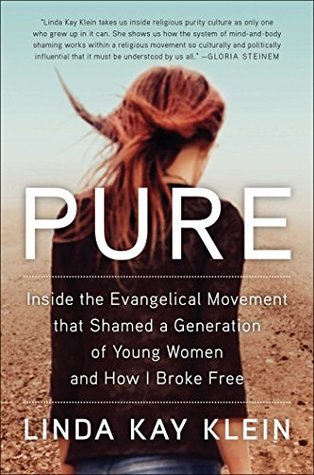More on this book
Community
Kindle Notes & Highlights
Read between
October 2 - October 9, 2018
We went to war with ourselves, our own bodies,
The purity message is not about sex. Rather, it is about us: who we are, who we are expected to be, and who it is said we will become if we fail to meet those expectations.
The religious purity messages many of us received as girls were not about what we might do, but about what we would be,
the more powerful, and far more prevalent, messages are covert: shaming attitudes embedded into everyday language, shaming lessons slipped into stories, shaming treatment felt by those who are being shamed and observed by those who fear they will be shamed next. Sometimes, you can be in the room when these covert messages are relayed and not even hear them. They are that commonplace. If the messages don’t hurt you, you are less likely to hear them
(girls are a whopping 92 percent more likely to experience sexual guilt than boys)
the relationship between sex guilt and sex anxiety, sexual efficacy, and sexual satisfaction, doesn’t diminish over time; it gets stronger.XXI . . . This is not a recipe for young women to embark on a fulfilling relationship with their partner
When I was young, I thought God was in the hand that scooped me up when I joined the evangelical church. The hand cradled me, and I felt safe and protected. I believed that God lived here, in this one religious expression with all of its interpretations, rules, and regulations, including those that felt wrong to me even then, like the purity ethic. But as I grew older, the hand began to squeeze me, and I became uncomfortable. I tried to make myself smaller, squishing myself down so I could fit inside of it, but all of the ways in which I was not the “right” kind of Christian woman squeezed
...more
repeated often among some Christians, particularly Christian women. Our reward for suffering “with joy”—smiling and not complaining—is being told we are “good.”
Even outside of the church, everyone loves the good suffering woman:
In books, movies, and just about everywhere else, girls get the message that the more selflessly and painfully a woman suffers, the more we love her.
My friends and I were told in one breath we were loved unconditionally, accepted just as we were, and headed for Heaven, and in the next
we were warned of the evils of feminists, homosexuals, women who had sex outside of marriage, and other Hell-bound individuals.
That unconditional love that I had fallen for in my early days in the church? It was conditional.
the feeling that “there’s no place for me here” can lead to the belief that “there is no place for me with Jesus.
people tend to shame others for what they are ashamed of,
The cornerstone of the purity myth is the expectation that girls and women, in particular, will be utterly and absolutely nonsexual until the day they marry a man, at which point they will naturally and easily become his sexual satisfier, ensuring the couple will have children
we knew we would be shamed if we asked sexual questions; shamed if we discussed sexual decisions; shamed if we shared our confusing sexual feelings and thoughts; and shamed worst of all if we admitted we had already done anything sexual. So each of us guessed at what the rules might be, hoped we were right, and didn’t tell anyone about our sexual lives just in case we weren’t.
To be “pure” in someone else’s eyes is to be like them—absent of the elements that make you difficult for them to understand or accept.


